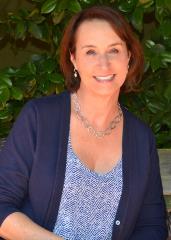One of the best-regarded educators at the Skirball, Janet B. Fattal shares some thoughts on her ten years facilitating book group discussions. We caught up with Janet for a Q&A on what made her Skirball tenure so special. From developing curricula for our reading groups to pivoting in the face of a pandemic, Janet's presence will be felt for years to come.
Read all about her favorite memories and lasting impact.

Q: What are your favorite memories and accomplishments at Skirball, both personally and professionally?
A: Skirball students are smart, well-read, accomplished, and worldly. And did I mention opinionated? But facilitating is not lecturing. I had to strike a balance between listening and sharing my own thoughts and research. I often had pages and pages of notes, reviews, historical background, literary context – but I allowed the discussion to flow in different directions.
I added an audio-visual component to the meetings, usually a short clip about the author, the book, or the historical context. I also reached out to our authors and recorded a Zoom interview to share in class. Getting to know these generous, thoughtful writers was a treat – and a highlight of the meetings. I expanded the program with more groups and more participants. It was always my goal to create a community of readers, and as the months (years!) have passed, I have been gratified to see friendships that transcend the monthly meetings.
Q: If you could pick one favorite series in connection with a Skirball exhibition, which one would it be?
A: I am often asked to name a favorite book or author – and I’m pressed to choose. I love the classics, Jewish and Israeli literature, contemporary literary fiction, and compelling non-fiction. Each semester had memorable, readable books; there were also titles that were a struggle. I often said, “My job is not to make you like the book, but to help you see the value in it.” When students told me that they came to class disliking the book but left with a greater appreciation, I felt the discussion had been successful.
The series of books that we read in conjunction with the exhibit on Rudi Gernreich, the ’60s fashion designer, World War II refugee, and Angeleno stands out in my mind. We read five books from the ’60s, many that had been bestsellers. It was great to look back and read these books again, to see how literature reflected the monumental cultural changes of the era.
Q: How were you able to successfully rebuild our reading community on campus after the pandemic?
A: When lockdown began, we immediately started meeting on Zoom. We were all new to the format, and it took some time to adapt – technical challenges, people speaking while muted, dogs barking in the background, cat tails parading across the screen. But we kept meeting and discussing, sharing our passion for books and ideas. Zoom gave us a way to maintain our connections until we were able to return to the classroom.
Q: Can you provide a little about your background as a teacher and writer and your next steps?
A: After earning a master of comparative literature degree from UCLA, I embarked on an unusual career as an educator, teaching literature and writing to many levels and age groups, middle school, high school, college, university, and adult learners. Along the way, I wrote and edited curricula and essays, always with the ambition of becoming a creative writer. Recently, as one half of the writing team of J.J. Gesher, I have written several screenplays (one produced for Lifetime television) and one published novel (A Narrow Bridge, 2017). J.J. Gesher has another novel in the publishing pipeline and has developed a limited series for streaming television.